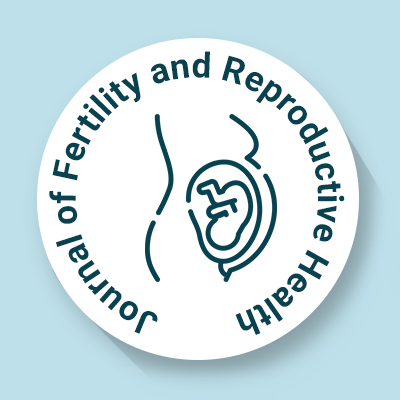
Journal of Fertility and Reproductive Health
OPEN ACCESS

OPEN ACCESS
Infertility is a global health issue affecting millions of individuals and couples, defined as the inability to conceive after 12 months of regular, unprotected intercourse. It is a complex condition influenced by multiple biological, environmental, and lifestyle factors. In women, infertility can result from ovulation disorders, such as polycystic ovary syndrome (PCOS) or hormonal imbalances, as well as structural issues like blocked fallopian tubes, uterine fibroids, or endometriosis. Age is also a significant factor, as a woman's fertility declines after 35 due to reduced egg quality and quantity. Autoimmune disorders, thyroid dysfunction, and recurrent pregnancy loss further contribute to female infertility. In men, infertility is often linked to low sperm count, poor sperm motility, hormonal imbalances, genetic conditions, or lifestyle factors such as smoking, alcohol consumption, obesity, and drug use. Exposure to environmental toxins, radiation, excessive heat, and chronic stress can negatively affect sperm production and function. Additionally, sexually transmitted infections (STIs) and certain medical treatments, such as chemotherapy, may impair male fertility. Advances in reproductive medicine offer hope through treatments like in vitro fertilization (IVF), intrauterine insemination (IUI), egg and sperm freezing, and assisted reproductive technologies (ART), allowing many individuals to achieve parenthood. Additionally, hormonal therapies, surgical interventions, and lifestyle modifications can help improve fertility outcomes. Emerging innovations, such as AI-powered fertility diagnostics, genetic screening, lab-grown gametes, and regenerative medicine, continue to transform infertility treatment, offering more personalized and effective solutions. However, infertility is not just a medical condition—it carries significant emotional, psychological, and social challenges, often leading to stress, anxiety, depression, and stigma. Couples struggling with infertility may experience relationship strain, financial burden, and social isolation. Mental health support, counseling, and community awareness play a crucial role in addressing these challenges. As science advances, increasing access to fertility education, preventive care, and early diagnosis can empower individuals to make informed reproductive choices. Infertility remains a deeply personal journey, but with continued research, medical advancements, and holistic care, the dream of parenthood is becoming a reality for many.